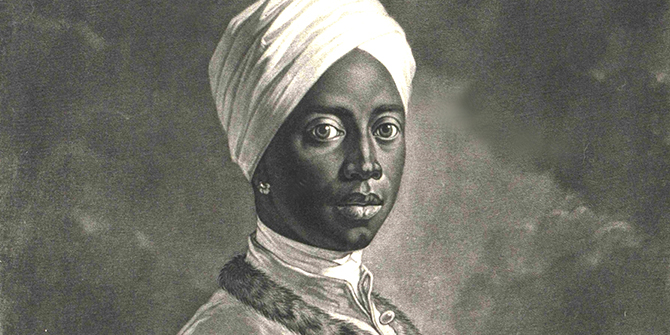The stigma attached to widows in Kenya is overlooked in the country’s strive for gender equality. Traditions used to ‘purify’ the widow further violate women’s freedom while exacerbating health crises in the region. Education and grassroots initiatives, argues Roseline Orwa, are integral to any transformative policies that promote widows’ social and economic inclusion.
In parts of Kenya, particularly rural areas, for women who lose their husbands socio-economic inclusion remains a struggle. In some communities, widows are considered impure and assumed to carry an omen of death, and in need of being sexually ‘cleansed’ to remove the omen. Stigmatisation and ostrascisation of these women, coupled with a cultural silence on widowhood, consequently remain forgotten components in Kenya’s struggle for gender equality.
The practices of widow cleansing, as well as widow inheritance, pose a serious risk of spreading HIV/AIDS to individuals and among the wider community. Further, women’s right to freedom from sexual gender-based violence is violated, in which the place of ‘choice’ is completely forgotten.
According to these traditions, widows are expected to engage in sexual intercourse with a ‘cleanser’, without the use of protection, to remove the impurity ascribed after her husband’s death. Widows are also inherited for the purpose of fulfilling cultural obligations, where couples, including widows, are expected to engage in sex preceding specific activities, such as building homes, funerals, weddings, agricultural practices and other significant cultural and social events. Widows inherited for the purpose of fulfilling these obligations have a higher prevalence of HIV than those who remain un-inherited or are inherited for the purpose of companionship. According to a JIAs report, there is a need for additional women-centred HIV prevention options.
In light of the HIV/AIDS pandemic, sexual cleansing and wife inheritance practices remain unspoken and often left to academic research, in which these issues are written about in circles far removed from the reality. Subsequently, there is a problematic silence around the issue in Kenya, and across the globe.
In the last three years, according to research conducted by my organisation, the Rona Foundation, there appears a shift as the media begins to tell stories of widows’ achievements, such as women running grassroots orphan support programs and interventions and reviving their communities as change makers. Slowly, some of these widows are earning recognition and acceptance as leaders, amidst these harmful practices.
However, a lot remains to be done. There are few ongoing interventions to change attitudes and behaviours in remote poverty-stricken villages. Policies and laws to outlaw these long-standing practices remain elusive when to challenge culture in Kenya is seen as a bad omen in itself – on both the individual and shaming the larger community. It is perhaps for this reason that community leaders and the political class have remained silent on addressing the issue, resigning widows to a category of women vulnerable and forgotten; anyone seen to challenge these practices is shunned, socially rejected and becomes in the eyes of the community an outcast.
The levirate system of widow cleansing and inheritance – where a deceased man’s brother was obliged to marry his brother’s widow – does not exist today following the impact of the HIV/AIDS scourge. Many villages were left as grave yards. Today, the practice has largely been taken on by business, where brother-in-laws seeking to protect themselves from deadly illness negotiate with and pay ‘cleansers’ in their place. The role of the market has been further empowered because while elders would have previously met to decide who inherits a widow, now with villages perished this is no longer always possible. Further, the gap of missing husbands is seen in the care system, where elderly widows are left to support their orphaned grandchildren, and sometimes required with little strength to till the land, often vast.
Community leaders and political classes have not publically drawn the link between widow sexual cleansing and inheritance and the spread of HIV/AIDS. Such links might influence the formulation of alternative cleansing ceremonies, free of sex, with policies and legislation in place to provide widows protection. There is a feeling among elite circles that new cultural formulations might lead to challenges in other areas, where power, wealth and social status also come under increased scrutiny.
We should start with education, the pursuit of which in Kenya has increasingly been considered important for families, despite the struggles for its provision for children across economic statuses. According to the National Literacy Survey, last conducted in 2006, literacy rates are higher in young adults than old, and even the poorest families in remote rural villages nowadays have at least one child who has basic primary education – a slight improvement. But roughly one third of adults remain illiterate, and there is no sign that awareness from these marginal gains has translated into how widows are viewed without direct interventions.
Given that education has not played a transformative role, several questions emerge: has education been eclipsed by sexual power, patriarchy or gender inequality? Or are these practices about ignorance of the weak and greed of the mighty? In failing to address these questions, the elite’s inaction is felt in many villages across Kenya where widows suffer psychological stressors such as depression, anxiety and substance dependence which remain ignored. Education must be about more than finding jobs and generating household income, but taking leadership to protect the illiterate, poor and vulnerable.
Pockets of organised widow groups are nonetheless calling for change, drawing attention to the importance of widows having a ‘voice’ and a ‘choice’. With policymaking thus far being in the hands of men, who have failed to embrace an inclusivity of protection and provision, grassroots solutions initiated by people these women know, see and respect is fundamental. Such awareness campaigns must work alongside education reform as key drivers of development and social change.
But more than claiming their rights, widows need to become moral authority advocates and community duty-bearers, encouraging young adults to champion such rights. Only in this way can we create progressive change with effective leadership structures. Because no woman should lose her rights and dignity when she loses her husband.
Roseline Orwa is a Fellow of the Amani Institute for Social Innovation Management, serves as CEO and Founder of the Rona Foundation, and has been nominated for the UN Yvonne Herbert Program for Women in 2018. Roseline is a childless mother to 26 orphaned children, and runs a community centre in Kenya that supports widows and orphans.
The views expressed in this post are those of the author and in no way reflect those of the Africa at LSE blog, the Firoz Lalji Centre for Africa or the London School of Economics and Political Science.






